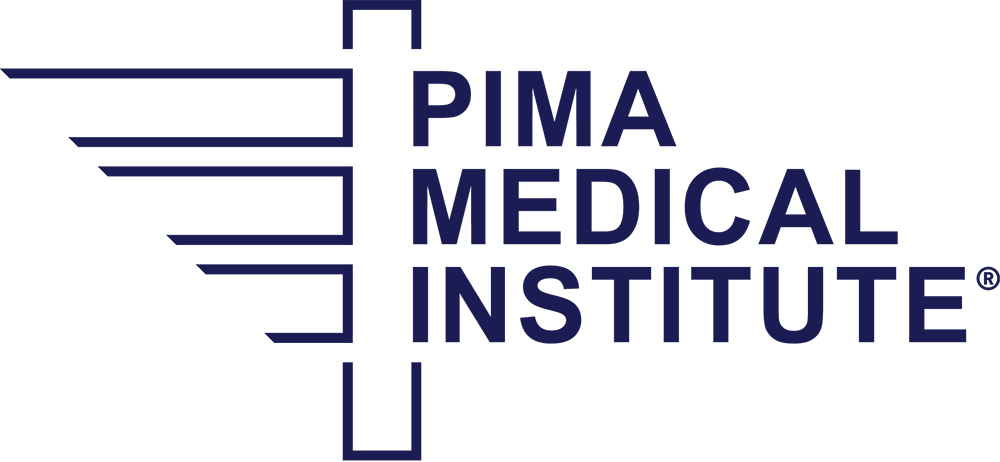Our career services team, instructors, program directors and more work hard to help you with job placement, but starting a new job can be an intimidating process. When looking for a job on your own, the task can seem even scarier. Have no fear! We reached out to our very own experts to get their advice for when you’re ready to start applying for your new healthcare career.
Theresa Neuhaus, Human Resources Employment Recruiter, and Susan Thompson, Online Career Services Coordinator, added their insight into what employers look for on your online profile, job search tips, recommended job sites, what you should prepare for before submitting a job application and more.
What are some of the tips you give to students when they’re looking for a job?
Thompson: Prepare. There is no reason to go into an interview and try to wing it. Mock interviews are a great way to develop answers to those questions you know they will ask. ‘Tell me about yourself’ is such a common question, yet so many people go into this by talking about themselves, their family, where they grew up, etc. Unfortunately, those doing the hiring really want to hear “what can YOU do for ME? How will hiring you have a positive impact on my business?”
There is a formula for this:
- What have you done in the past?
- What are you doing now?
- How does the combination make you the best candidate for this job?
What are some of the top things you look for when you receive an application from a candidate?
Neuhaus:
- How do you present yourself on paper?
- Is your resume easy to read and organized or do I have to search for what I’m looking for?
- Do you include dates of employment (mm/yy) and job titles?
- Are the application materials free of grammatical and spelling errors?
Where are some places you’d recommend they check besides online job search sites?
Thompson: Network, network, network. There is a book called ‘What Color is Your Parachute?’ and it is fantastic. Apparently an old book that keeps being updated as the job search process continues to evolve. The reality is people are more willing to take a chance on someone when they have an endorsement from someone they already trust. So network, use social media to present yourself as a professional, and don’t be afraid to ask those in your network if they can introduce you to someone who may be hiring. So be sure to have a strong relationship with people during their clinical, and don’t be afraid to ask for help. And read that book.
What are some of the biggest mistakes students can make while looking?
Thompson: Unprofessional social media presence. Not googling yourself or being naive and thinking others won’t Google you after you apply. They will. Also, not preparing. Unfortunately, we often defend ourselves from possible rejection by acting as if we don’t really care, when in fact we care SO MUCH. Don’t do that. Put in 100% every time and keep a good attitude. Just because you don’t get the job you’re interviewing for does not mean there won’t be something else that opens up soon. And if you presented yourself as gracious and professional you might just be the perfect person.
Should students follow up with employers after they submit their resume? If yes, how long should they wait?
Thompson: Absolutely. For seven years I always told people I interviewed that I would be making a decision by Friday. I really intended to but don’t think it ever happened. The candidates that called always made it onto the short list.
Here is the rule on this: At the end of the interview you should inquire about when the hiring manager plans to make a decision. Then if you don’t hear by then, give them 48 hours professional courtesy. After that, it is HIGHLY recommended that you call and ask. I won’t lie, it can be a hard call to make. Nobody likes rejection. But type out what you want to say, then read from that and be willing to get bad news. I have had several students hired in the past where they were told, “we were on the fence but you came off as such a professional when you called.” Also, this is a great opportunity to get some accurate feedback. This way you can make adjustments for their next interview.
Neuhaus: Most recruiters would probably say no, but I don’t mind the follow-up because it gives me a chance to ask them any questions I may have about their application, and I usually will send the hiring manager an email letting them know that the candidate followed-up.
What are some of the things students should have prepared before they submit for a job?
Thompson: Do not underestimate the importance of LinkedIn. There should be a link to your profile on your resume. Also, a portfolio if you are finishing a higher degree, or have a lot of noteworthy and relevant experience.
This is how I taught students at the Denver campus, and am still doing it today with students in our online programs.
Prepare your answers to interview questions (see 1st question) and then take the time to:
- Script it out.
- Edit to perfection, so you say only what you want to say and nothing that you do not want to say.
- Memorize it.
- Practice, practice, practice, until it sounds comfortable and conversational. It would be weird if you sounded like you were rattling off lines in a play.
I highly recommend you practice with strangers, if possible. It is the best replica of the anxiety level you will experience in an actual interview. Take a bus somewhere, people on the bus love to get into conversations with strangers and it is a perfect opportunity to practice your answers.
What do you look for on someone’s LinkedIn profile?
Neuhaus: That there are no gaps in employment, and if there are that they are explained. Any mutual connections or recommendations and their interests, specifically who they follow.
Any other advice you have for online job searching?
Neuhaus:
- Don’t include your picture on your resume unless you are applying for a job that merits including a picture.
- Design your resume for the position you are applying for. If you are using an objective, make sure that it aligns with the position.
- Do not say “Reference available upon request”. That’s a given. If you are the selected candidate, you will give references if requested.
If you are looking for a fulfilling career in the healthcare field, take the first step now at pmi.edu.

Theresa Neuhaus has been the Corporate Employment Recruiter for Pima Medical Institute for almost seven years. She has an extensive background in employee relations, training and development and recruitment. Prior to joining PMI, Neuhaus was the Allied Health Recruiter for Verde Valley Medical Center in Northern Arizona. She also has experience as an education coordinator and training consultant. She holds a bachelor’s degree in Workforce Education and Development from Southern Illinois University.

Susan Thompson is a proud three-time graduate of Pima Medical Institute. In 2011, she graduated with a certificate in medical assisting, then an associate degree in healthcare administration in 2014, and finally received her bachelor of science in healthcare administration in 2016. She has worked for Pima Medical since 2013, spending her first five years as the Denver campus Career Services Advisor. She now works with our online students, and as an alumna this brings her such joy as well as a unique perspective of what it’s like to be an online student at Pima Medical. She looks forward to working with students and is here to answer any questions they may have about Career Services and our Professional Development Workshop series.



